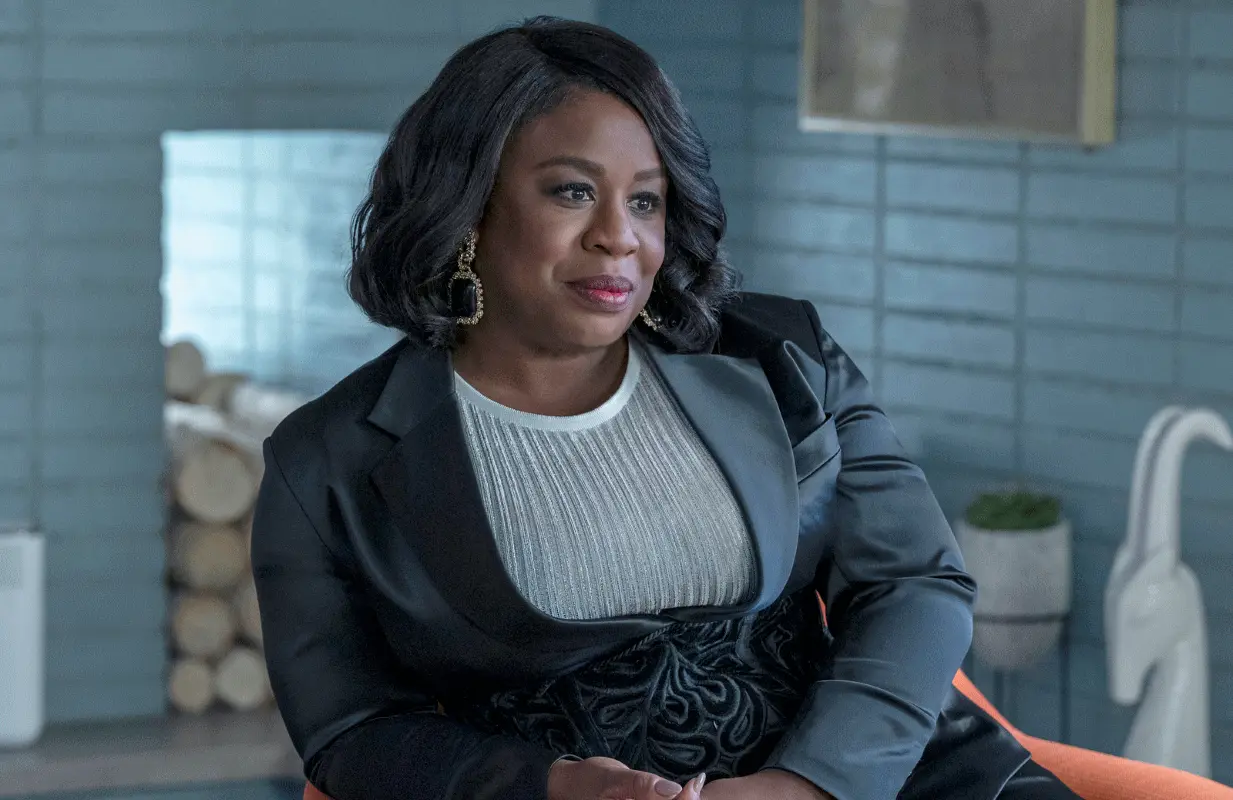In Treatment Is the Ideal Binge Release. So Why Isn't HBO Binge Releasing It?
-
 Uzo Aduba stars in HBO's revived In Treatment. (Photo: Suzanne Tenner/HBO)
Uzo Aduba stars in HBO's revived In Treatment. (Photo: Suzanne Tenner/HBO)When the first season of In Treatment debuted on HBO in January of 2008, the idea of watching a full season of TV in one shot was pretty much restricted to those collecting episodes on their DVR, or watching them on DVD after the season had ended. Either way, it wasn't the way the TV networks wanted you to watch the shows. For decades, the ideal for weekly episodic TV had been exactly that: weekly and episodic.
In the thirteen years since, television has changed drastically. Yes there are still weekly episode releases, but just as often entire seasons of shows will drop all at once, or in blocks of episodes a few at a time. Basically the rules for how to release a TV show today are that there are no rules, which should mean that a network like HBO (which provides its subscribers with free access to its programming on demand via HBO Max) is free to tailor its release strategy for each of its shows to best serve that show.
Which brings us to the Season 4 revival of In Treatment and how HBO is really missing an opportunity to use its various platforms to its advantage.
When the show first premiered in 2008, In Treatment was a unique viewing experience. It followed a psychotherapist, played by Gabriel Byrne, who saw a variety of patients, from a traumatized fighter pilot to a couple contemplating divorce to a suicidal teen. The show aired five nights a week, Monday through Friday, and each half-hour episode focused on a different patient. So Mondays were Melissa George night, Tuesdays were Blair Underwood (the fighter pilot), Wednesdays were Mia Wasikowska (the teen), Thursdays were Embeth Davidtz and Josh Charles as the sparring couple, and then on Fridays, Byrne's character would see his own therapist, played by Dianne Wiest (who won an Emmy for her work that first season), all meant to mimic the feel of having a weekly therapy session.
This release concept was thrillingly novel: a dramatic series with storylines so siloed off from each other that they aired on different nights. Viewers could either pick and choose which storylines they wanted to follow, or just watch them all. When ratings weren't great for Season 1, HBO scrapped the show's original release pattern for Season 2, instead airing two episodes on Sundays, followed by three on Mondays. This is very nearly the same release schedule for the rebooted In Treatment, and therein lies the problem.
The original run of In Treatment on HBO was rather ahead of its time. It seemed to be a show tailor made for watching in binges, and anecdotally that's how many (including this writer) seemed to watch it — by DVRing a week's worth of episodes, and then picking through them at the end of the week. Today that's how most of us watch our TV, so you'd expect HBO to lean into that and release four episodes on HBO Max ahead of their linear airing each week, or even — as fellow premium cabler Showtime has been doing with many of its shows recently — drop the entire season's worth of episodes online at once. Instead, bizarrely, HBO is sticking with airing two episodes on Sunday nights, and two episodes on Monday nights, releasing them individually to HBO Max only after they've aired.
If this retrograde release pattern ends up kneecapping In Treatment Season 4, it'll be too bad, because the show's cast is fantastic. Uzo Aduba plays Dr. Brooke Lawrence, the new central shrink. Her patients include Hamilton and In the Heights star Anthony Ramos, who's poised to have a breakout year, as well as stage and screen star John Benjamin Hickey. Joel Kinnaman (The Killing; Suicide Squad) plays Brooke's on-again, off-again boyfriend.
At its best, In Treatment has always been a fantastic showcase for actors in one-on-one scenes, akin to watching great theater. There's absolutely an audience for this; it's just puzzling that HBO — which adjusted its release strategy for this show in the past — isn't doing the same now that an ideal release format exists. It's enough to make me need to talk to my own shrink.
In Treatment Season 4 airs new back-to-back episodes on HBO each Sunday and Monday night at 9:00 PM ET through June 14.
Joe Reid is the senior writer at Primetimer and co-host of the This Had Oscar Buzz podcast. His work has appeared in Decider, NPR, HuffPost, The Atlantic, Slate, Polygon, Vanity Fair, Vulture, The A.V. Club and more.
TOPICS: In Treatment, HBO, Gabriel Byrne, Uzo Aduba